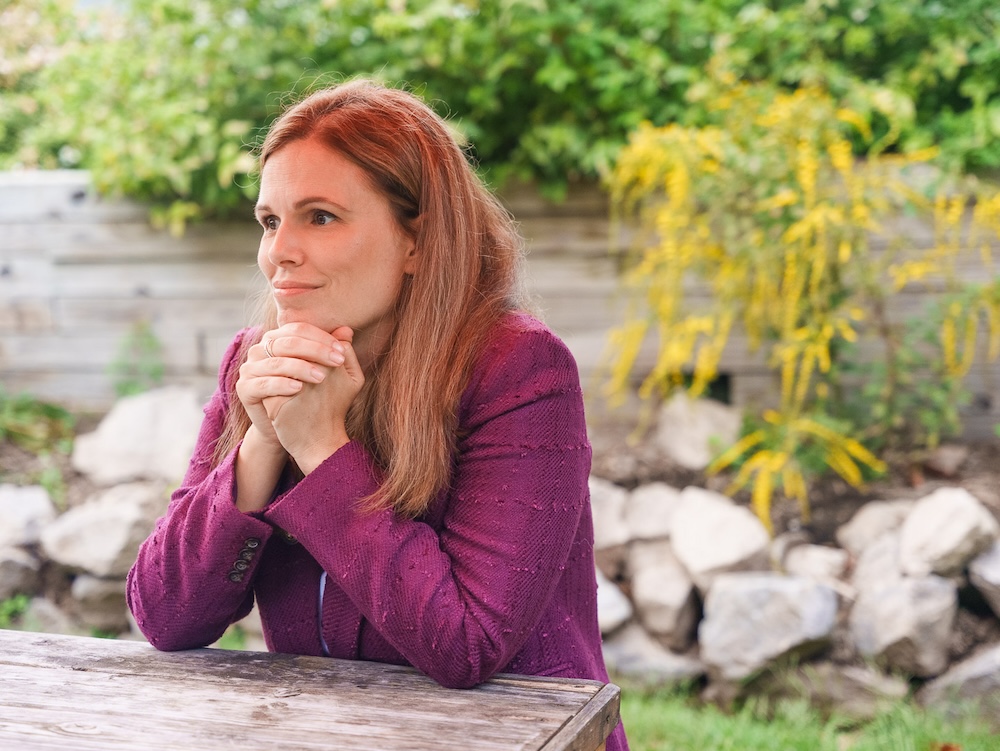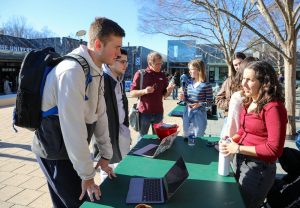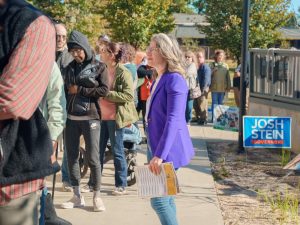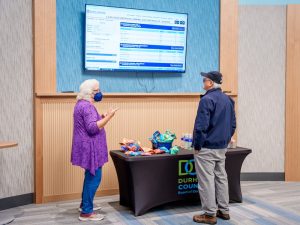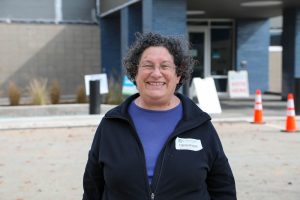After months of uncertainty and challenges, the ongoing battle for a North Carolina Supreme Court seat — the last uncertified 2024 race in the nation — may come down to less than 2,000 votes.
Republican Jefferson Griffin, who lost in November to Democratic incumbent Allison Riggs, has been fighting for months to invalidate the election results. Griffin’s challenge initially sought to toss out more than 65,000 ballots. But on April 11, the state Supreme Court reduced the number of votes in question, ruling that nearly 6,000 votes from military and overseas voters can be revisited. Then on April 15, the state Board of Elections further narrowed the number of ballots to be reexamined, saying that about 1,700 overseas ballots can be challenged.
However, it remains to be seen whether the state Board of Elections’ decision will be the final word in a case that has seen challenge after challenge.
The case has remained in the national spotlight as the numbers continue to shift. That’s because of the precedent involved in allowing any votes that were legal at the time of an election to be called into question after an election, says Duke University professor Gunther Peck.
“If you can challenge the rules after the fact, that’s like…in a Duke game, people get mad at the refs, but they don’t have the legal ability to actually throw the points out for the calls they didn’t like and then change the outcome,” said Peck, who has closely followed the Griffin challenge with his Student Voting Rights Lab.
“It goes against the very spirit of any competition that democracy is supposed to be built on.”
Assuming the state Board of Elections’ decision holds, only Guilford County ballots will be allowed to be challenged. Griffin had filed a challenge against Guilford County votes before the election. Guilford County voters who sent in absentee ballots while overseas must “cure” their ballots to avoid having their votes tossed. “Curing” ballots means fixing what Griffin’s team deems as mistakes with the ballots.
Meanwhile the legal back-and-forth continues — recently bumping up to federal court.
On April 12, a federal judge ruled that the cure process should begin as indicated by the state Board of Elections, but that the election should not be certified until further deliberation in federal court. Then on April 14, Riggs’ campaign appealed that decision, seeking a stay to pause the curing process. [Editors’ note: After this story was published, a federal appeals court ruled in Riggs’ favor, pausing the ballot curing process for now.)
To cure their ballots, Guilford County voters must submit copies of their photo IDs or exception forms online to the state Board of Elections. Military members will need to submit an exception form, as photocopying a military ID is against the law.
The Griffin challenge has been headache-inducing for many young voters in North Carolina. Around 285 youth voters (ages 18-25) from Guilford County are included in the challenge, according to data compiled by Peck’s Student Voting Rights Lab.
While the focus is on Guilford County for now, the challenged ballots have been changing week by week, stirring stress for other young voters such as Olivia Schramkowski.
Schramkowski is a Duke University junior whose ballot was included in the challenge until the recent state Board of Elections decision. Schramkowski worked with Peck in the Student Voting Rights Lab before leaving the U.S. this past fall to study abroad in London.
As part of her work with the lab, Schramkowski created a voter guide for students studying abroad. When the question arose of how students should handle voter ID requirements while abroad, a member of the Duke administration reached out to the state Board of Elections on her behalf. Schramkowski then received an email saying that her absentee ballot would not require a photo ID.
“I have written documentation from the Board of Elections saying that I didn’t need a voter ID in order to vote abroad,” Schramkowski said.
Thus, Schramkowski was surprised to find her vote included in the list of ballots challenged by Griffin’s campaign.
“I was really surprised, especially because of all the research and preparation that I had done,” Schramkowski said. “I knew I voted correctly. I had done my own research, but then I had also talked to the Board of Elections and confirmed numerous times.”
If the state Board of Elections’ decision holds, Schramkowski’s vote will stand and her ballot will not need to be cured. However, Peck emphasized that it’s unclear whether the state Board of Elections’ ruling is the last word in the matter.
“The thing about this case is that it literally changes by the day,” said Peck. “And of course, the Griffin campaign is challenging that administrative decision….”
“Durham could be back in, and a lot of Duke students including Liv (Schramkowski) would be back in the challenge.”
Editor’s note: On May 7, Jefferson Griffin issued a statement conceding the N.C. Supreme Court race, according to reports in The Assembly and other outlets.
Above: Photo of Allison Riggs by Kulsoom Rizavi — The 9th Street Journal
Lily Kempczinski

